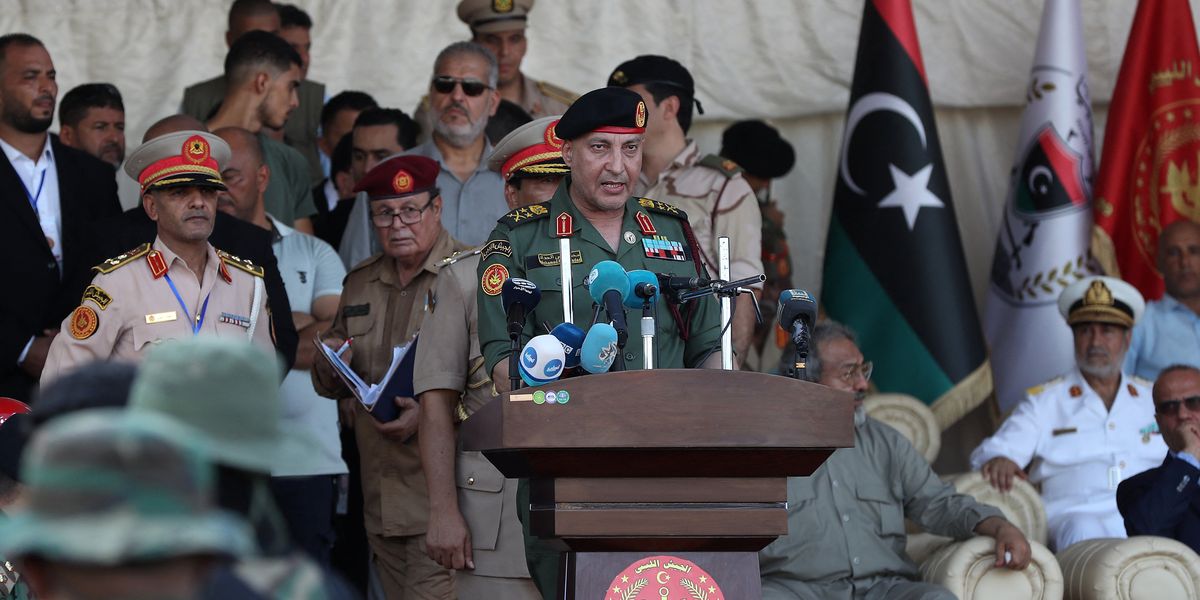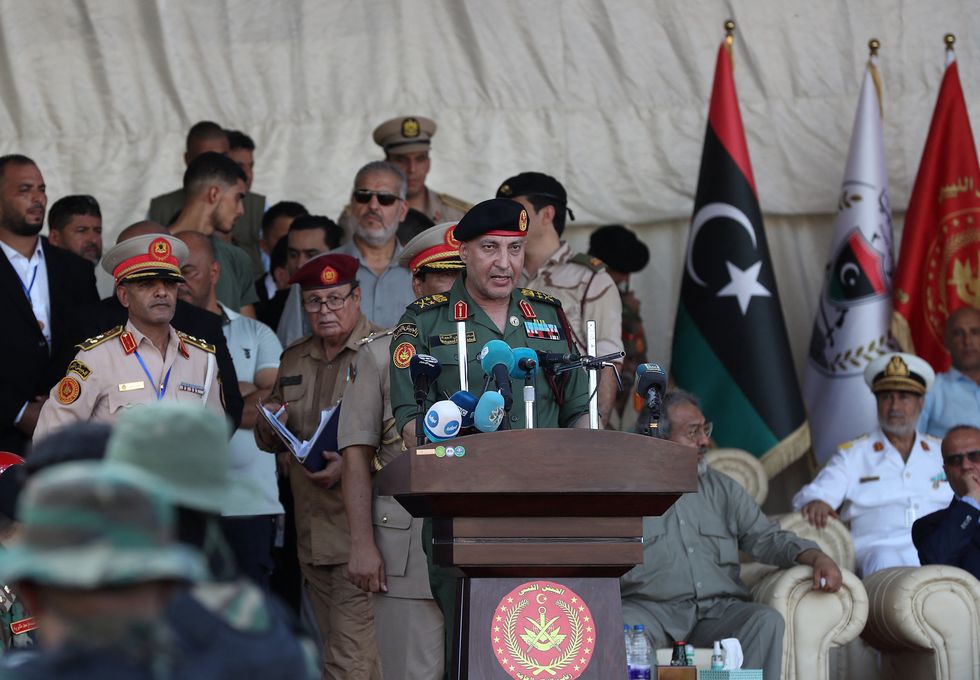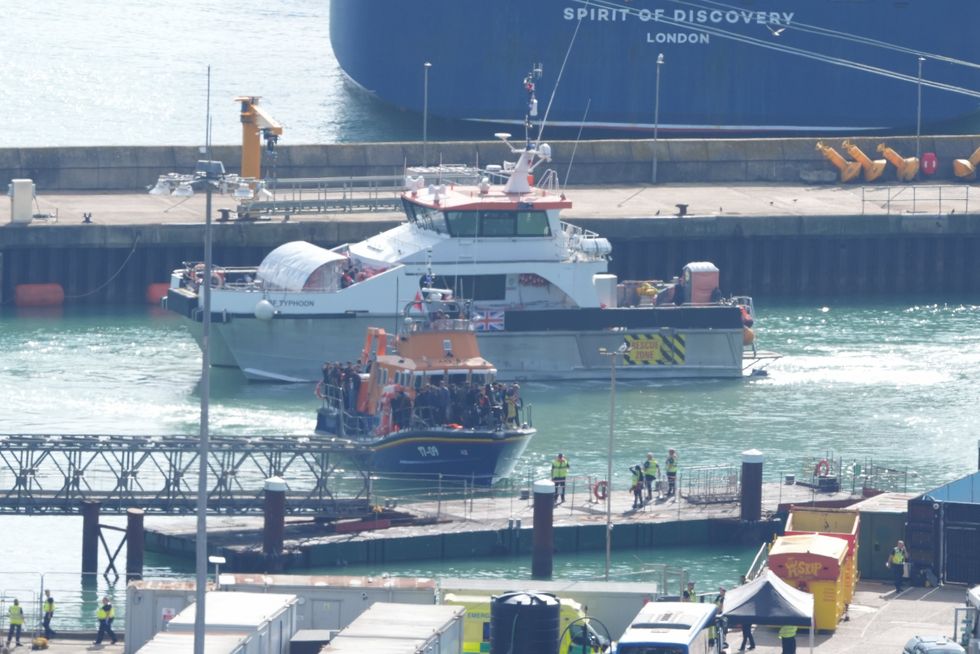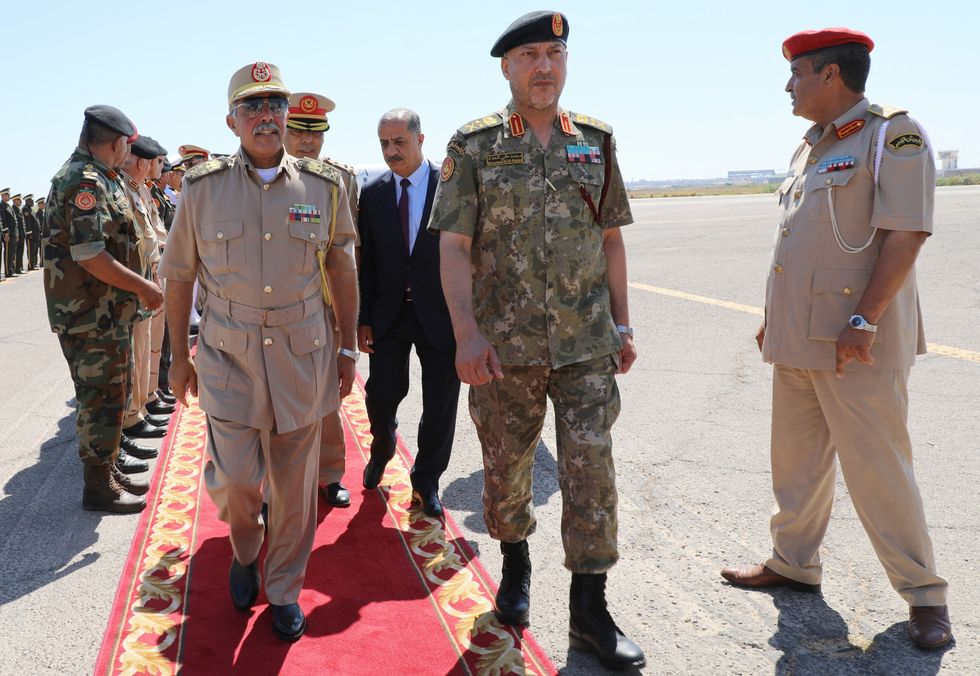



Military commanders from Libya's eastern forces have extended an offer to collaborate with Britain on intercepting and returning undocumented migrants before they attempt Channel crossings.
The Libyan National Army, which controls the country's eastern regions, has expressed its willingness to help prevent Libya from serving as a major transit point for people from sub-Saharan Africa seeking passage to Europe.
The military leadership insists that their capacity to halt migration flows across North Africa towards Britain and the EU faces significant obstacles due to existing United Nations sanctions that restrict their access to advanced surveillance technology and search-and-rescue equipment.
Libyan maritime forces currently intercept as many as eight vessels daily during busy periods.
Major General Khaled Al-Sreir, deputy chief of the illegal immigration combat department, said: "We want to cooperate with the UK. Libya is the place where your crisis starts. We are the first point of contact.
"We are also the ones who are trying to stop the problem, with almost no international help. We don’t need money – what we need is an exchange of experiences and scenarios."
Al-Sreir cautioned that Britain's welfare provisions were creating powerful incentives for migration attempts.
He explained that successful arrivals share their experiences with communities back home.

The Libyan National Army controls the country's eastern regions
|GETTY
The major general told the Telegraph: "When an illegal immigrant makes it from Sudan to the UK, and is put in a hotel, getting everything for free, what do you think he does? He contacts his friends and neighbours, and says, 'Look what I have here. Why don't you come too?'
"As a result, people who had never even thought of making this journey before are encouraged by their friends and family to try it."
This communication network encourages individuals who previously hadn't considered the journey to attempt it, according to the military official.
Libya faces an overwhelming migration challenge with over 800,000 undocumented individuals within its borders, despite having a permanent population of just 7.3 million.

Al-Sreir cautioned that Britain's welfare provisions were creating powerful incentives for migration attempts
|PA
The nation serves as a crucial pathway for people fleeing conflict zones, including Sudan, Eritrea, Chad and Niger. Nearly all Sudanese nationals who reach British shores receive asylum approval.
Libya's divided governance structure complicates international engagement.
The western regions, including Tripoli, fall under the internationally recognised Government of National Unity but experience persistent violence and unrest.
Eastern territories operate under the Government of National Stability, backed by General Khalifa Haftar's military forces, where greater stability prevails.

Libya's divided governance structure complicates international engagement
|GETTY
Lieutenant General Saddam Haftar commands the eastern military's immigration enforcement operations, overseeing desert search missions, maritime interceptions and operations targeting trafficking networks.
A Home Office spokesman said: "We will do whatever it takes to secure our borders and dismantle the people-smuggling networks that have taken root around them in recent years.
"As part of this Government’s commitment to strengthening investigative cooperation with authorities in key transit countries, the National Crime Agency, working alongside Libyan counterparts, has arrested suspected smugglers believed to have been involved in the movement of thousands of migrants into Europe."
The Home Office said that, in addition to working with Libyan authorities to train and equip law enforcement agencies, the UK also provides funding to the International Organisation for Migration in Libya to support voluntary return and reintegration programmes for migrants.
